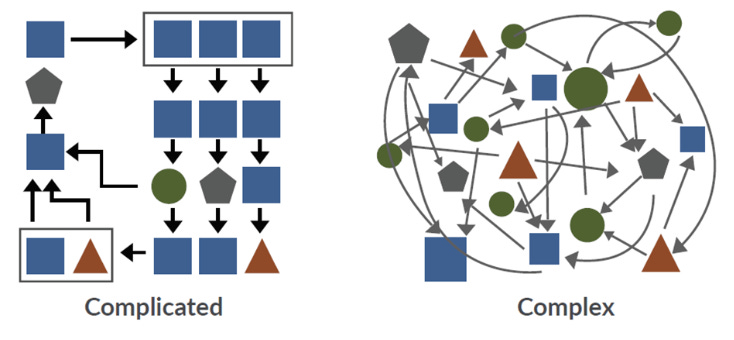Complex Systems, Simple Solutions, and the Myth of Climate Fixes
Bret Weinstein’s Warning About Misapplying Simple Thinking to Complex Problems
I was listening to Bret Weinstein and Joe Rogan talk and it made me think…
Bret Weinstein, an evolutionary biologist and critical thinker, and who I stole the professor-in-exile moniker, has called attention to a fundamental distinction between complicated and complex systems. His insights were very enlightening and offered a lens through which we can better understand humanity's many challenges, including climate change. Weinstein warns against the dangers of applying complicated thinking to complex systems, a common mistake with profound unintended consequences. Nowhere is this more relevant than in the climate change debate, where solutions like Solar Radiation Management (SRM) are proposed without fully appreciating the intricacies and uncertainties of the global climate system.
Complicated vs. Complex Systems
Weinstein differentiates between "complicated" and "complex" systems in a way that is crucial for understanding how we should approach modern problems. A complicated system, such as a car engine, involves many parts, but these parts interact in predictable and controllable ways. Even though there may be numerous components, if something breaks, we can usually trace the problem and fix it without causing cascading failures. The system operates in a linear, deterministic manner where inputs have predictable outputs.
In contrast, complex systems, like ecosystems or human societies, involve interdependent variables that interact in ways that are often nonlinear, unpredictable, and context-dependent. In a complex system, an action that works well in one context might have entirely different outcomes in another. Moreover, the relationships between components can produce emergent properties, behaviors and characteristics that arise from the interactions of the system’s parts but cannot be predicted by studying each part in isolation.
Complex systems are adaptive; they evolve over time, and small changes can lead to disproportionately large consequences. For example, a minor alteration in the food chain can ripple through an ecosystem, causing unforeseen changes in population dynamics and biodiversity. Importantly, in complex systems, unintended consequences are often the rule rather than the exception, making it impossible to fully understand or predict all the outcomes of our interventions.

Applying Complicated Thinking to Complex Systems
One of Weinstein’s key concerns is that people often try to apply complicated thinking—appropriate for mechanical, engineered systems—to complex systems. This mindset assumes that complex systems can be fixed or controlled by making adjustments to individual components, without considering the ripple effects that might emerge. This mechanistic thinking is deeply flawed when dealing with systems like the environment, human societies, or economies, where interactions between variables are dynamic, multifaceted, and not easily reducible to simple cause-effect relationships.
In the context of climate change, this type of thinking manifests in many ways.


